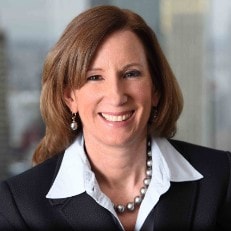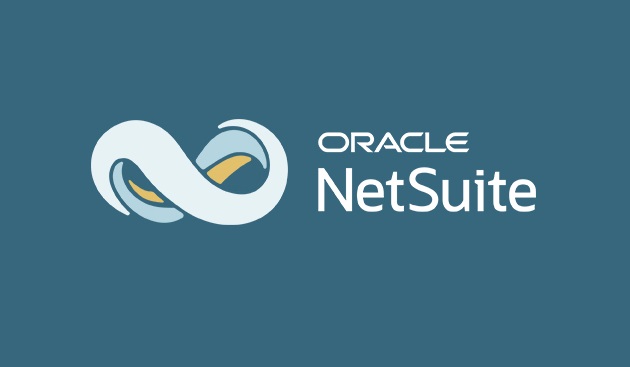Cathy Engelbert, CPA.CITP
2018 Most Powerful Women in Accounting
CEO, Deloitte
What advice would you give to female college students about the opportunities for women in the accounting profession?
Do what hasn’t been done! It’s the same advice I shared with graduates during a recent commencement address and it’s very much true here too. For me, that came to life throughout my career journey—joining new teams, working on clients in new industries, and jumping in on new projects—and ultimately as I was elected as CEO.
The career journeys of those entering the workforce today will be a bit more futurist and tech focused—journeys that involve the words Artificial Intelligence, drone, robot, automation. I encourage the next generation to stay optimistic and play an active, key role in carving the path leveraging your uniquely human skills—like creativity, empathy, communication, and complex problem-solving. Reinvention at every stage will not only still matter, but it will matter even more because of the pace of change today.
What would you suggest to accounting firms that are interested in retaining and advancing more qualified female staff?
For me, it’s not only about focusing on retaining and advancing more qualified women, it’s about creating an environment where everyone—men and women alike—thrive. Our Family Leave program was born with that in mind. Up to 16 weeks of paid leave for any family health matter, not just the birth of a child. And, that’s just part of our holistic support, which includes student loan consolidation, holistic health benefits (like a fitness subsidy), adoption reimbursement, emergency backup dependent care, a sabbatical program, our 401(k) and pension plan, corporate athlete program, etc.
When everyone is supported—and in an environment where they are comfortable sharing their honest thoughts—we get the full range of diverse perspectives out on the table and we get our very best thinking.
Why did you choose to work in – and stay in – the accounting field?
When I started college at Lehigh University, I thought I wanted to be in computer science, but after taking a Fortran programming class I knew it wasn’t for me. I—very thankfully—took the advice of a professor to give the business school a try. Not only did I find a major and get a job, I saw how fluency in the language of business opens doors. Accountants and auditors play a vital role in facilitating increased transparency in the capital markets, help investors make informed decisions so they in turn can invest with confidence, and provide strategic insights that can help guide and inform future business decisions. Those are the purpose-driven reasons to stay in the field. And for one’s own development, this field means non-stop on-the-job learning that fuels personal and professional growth. I have had five different careers all with the same firm, and that’s not unusual, including becoming a derivative and financial instrument specialists—who would have thought as an accountant I would have become an expert in something so complex? The opportunities in this profession to grow and reinvent yourself is really unparalleled.
What changes do you foresee in the accounting profession of the near future (3-5 years)?
The world of work is changing quickly—and it’s only going to continue. The who, where, and what of how work gets done will continue to evolve. We’ll see more automation, more cognitive technology and analytics, and more “off balance sheet” talent. This may sound daunting but I believe it is exciting. New tools will augment our profession and we will have more focus for the essentially human work of combining judgment, insight, skepticism, courage, and empathy.
How do you see yourself participating in shaping the future of the accounting profession?
I’m excited about how we can shape the profession and it’s less about me than about how we all come together to do this. I’ve been very active with the Center for Audit Quality on this question, the AICPA is doing great work, as are many other firms and university accounting departments, not to mention the regulators. First, I hope that all of us can increase the sense of trust and integrity that the public sees in our profession. We serve the capital markets, and trust is our product, so to speak. To maintain and increase that sense of trust, it takes all of us. Second, diversity in every sense is crucial to our future. Diversity of thought, background, and skillsets. We haven’t always done a great job creating pathways for under-represented groups, and that has to change. And finally, because technology is changing so quickly and we’re seeing rapid gains in AI and automation, there is a lot of uncertainty and unanswered questions. I think it’s on all of us to embrace new ways of working and to lead with a sense of excitement about the possibilities. So I hope to inspire the next generation of accounting profession leaders around how the profession is evolving and why it is an exciting time to be witnessing that first hand.
Describe one person who has been an important mentor to you and how that person helped shape the direction or focus of your professional life.
I’ve been fortunate to have so many great influences. One person who comes to mind right away is our former CEO, Mike Cook, who was ahead of his time. Partly because Mike had daughters, he was sensitive to women having the same opportunities as men. He realized that if we wanted to fulfill our commitment to clients, we had to retain our high talent women. At the time, recruitment of those coming out of colleges was 50/50, but the percentage of women in our leadership ranks was still only in the single digits. I was lucky to work in our national office with Mike and had had the chance to demonstrate my quality to him. So when Mike decided that Deloitte would become the first professional services organization to launch a women’s initiative, I was an early participant, and it really helped shape my career. Being part of his team also gave me an important view of confidence and courage in a leader.
I have been fortunate to have mentors and sponsors who always supported me and encouraged me to be my best, and that was one of the most important factors in preparing me for the role I have today. I learned early on the importance of having sponsors and mentors—and the difference between the two. A mentor is someone who almost becomes your friend and gives you a sanity check. A sponsor is someone who has the power and influence in the room where they are deciding different things for you to do in your career.
Please share a personal rule or principle that you follow.
A lifelong principle I have followed is, “prioritize people over tasks.” I recently gave the commencement address at my alma mater Lehigh University. As I was preparing, I reflected on my last two years there, and how as a basketball team captain I took younger players under my wing. I realized that has been a core part of my approach throughout my career. When I became CEO, I received great advice from Condoleezza Rice, who said, “Remember that one of the most important things you can do is develop your successors.” Developing and investing in others is one of the most valuable things any of us can do. Prioritize people over tasks!
See the full list: 2018 AICPA / CPA Practice Advisor Most Powerful Women in Accounting.
Thanks for reading CPA Practice Advisor!
Subscribe Already registered? Log In
Need more information? Read the FAQs
Tags: Artificial Intelligence




